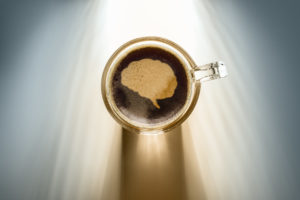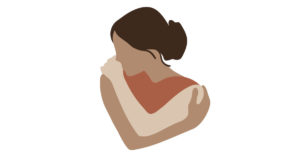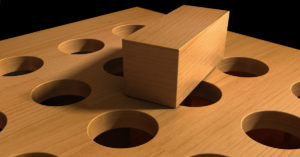By Sheila O’Shea Everybody has a story. People who have been through trauma and difficult times especially. They’ll often have a story that helps them make sense of what happened. Mine was the one I told about “The Unpleasantness.” It started with a beautiful morning where I felt absolutely miserable and ended with my parents…
Read More >>By Sheila O’Shea I have a lot of mindfulness techniques in my mental toolbox that I use to handle my bipolar disorder, particularly the depressive ends of it. I refined my knowledge of mindfulness meditation at Skyland Trail, and I have a few methods that I came up with on my own. Mindfulness In Hearing…
Read More >>Discover the effects of caffeine on the diagnosis and treatment of mental health disorders like anxiety, depression, and bipolar disorders.
Read More >>By Sheila O’Shea “To love oneself is the beginning of a lifelong romance.” – Oscar Wilde, An Ideal Husband Valentine’s Day is known as a day to express love to one’s romantic partner with cards, flowers, candy, and gifts. But you don’t need a partner to have someone to express love to. I’m not in…
Read More >>By Sheila O’Shea [Trigger warning: suicidal ideation] I knew it wasn’t Attention Deficit Disorder. I went through a battery of tests for ADD—pointing at pictures of aliens and reciting their names, holding a metal rod steady so it wouldn’t touch the inside of a metal ring, filling out questionnaires—and the doctor concluded that I didn’t…
Read More >>By Sheila O’Shea It’s time again to make resolutions for the new year so we can break them in February and feel disgusted with ourselves. Whee! If that’s how your resolutions end up going, there are other ways to approach the new year that may work better for you. How To Phrase Your New Year…
Read More >>Teen avoidant behaviors—even if they are driven by depression or anxiety—make many mental health problems worse. There can be a “snowball effect.” Avoiding one situation leads to avoiding another, and another, until the teen effectively shuts down.
Read More >>What is a dual diagnosis treatment program? A dual diagnosis treatment program helps people who have a substance use disorder and one or more co-occurring psychiatric diagnoses, including a mood disorder like major depression or bipolar disorder, an anxiety disorder, schizophrenia or another thought disorder, or a personality disorder. Therapies and programs are structured to…
Read More >>In order to fully understand how to best treat mental illness, we must first understand the factors that can cause mental illness, specifically the balance between nature and nurture. It’s important to remember that psychiatric conditions are medical problems that deserve the same kind of attention, research, and treatment as any physical ailment. What Causes…
Read More >>Taking care of yourself—both physically and mentally—is an important part of overall wellness. The idea of self-care has grown in popularity in recent years, filling social media timelines and news feeds with tips and tricks. Self-care activities can be great tools for anyone looking to manage stress, be more aware of their feelings and emotions,…
Read More >>









